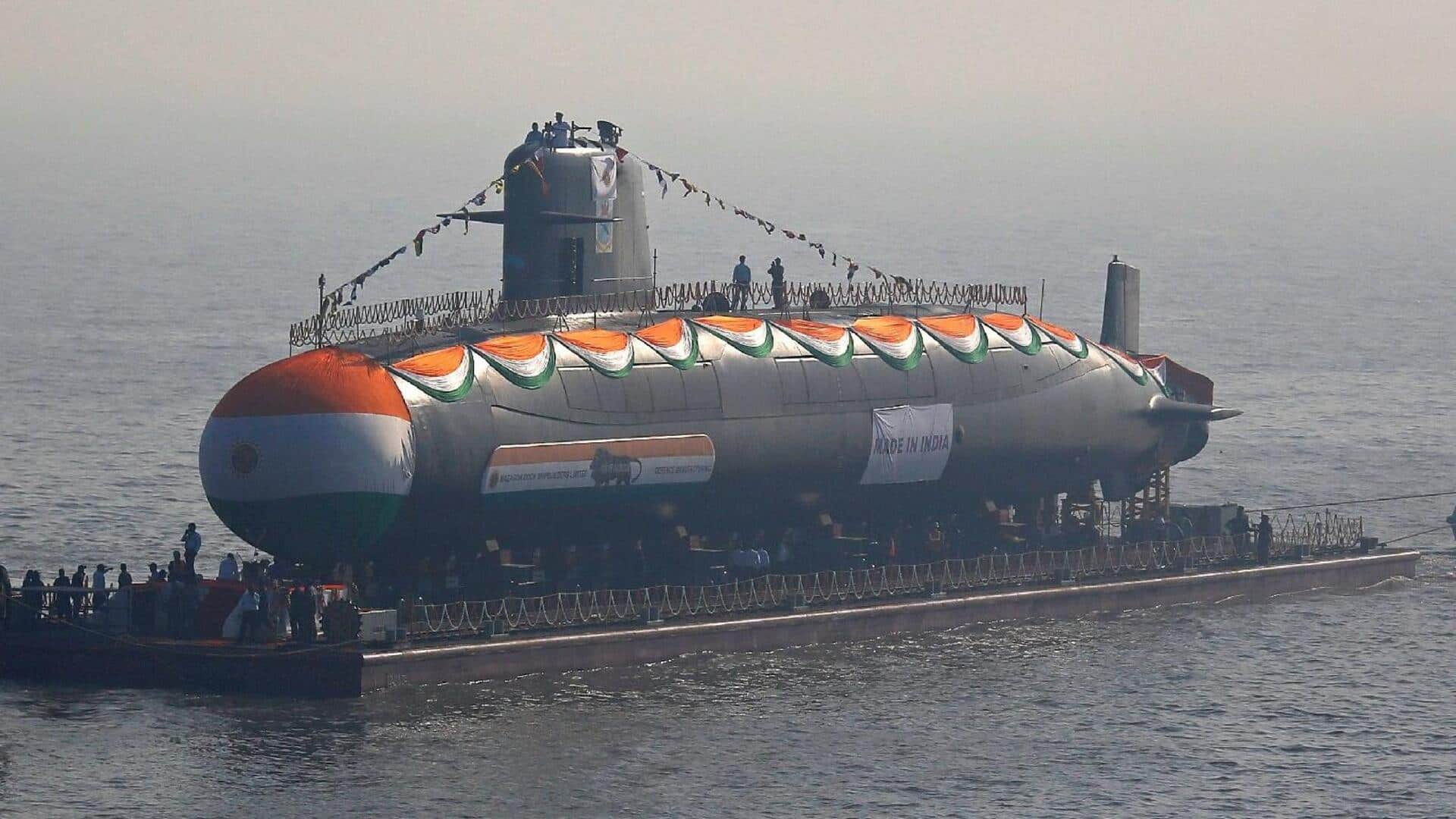
Next-gen Indian submarines to feature 200 MWe nuclear reactors
What's the story
Bhabha Atomic Research Centre (BARC) is working on a new nuclear reactor for India's next-generation submarines. The project will significantly enhance the capabilities of the Indian Navy. The new reactor is expected to produce 200 MWe (megawatt electric) and will be integrated into India's upcoming S5 nuclear submarine and six planned nuclear attack submarines under Project 77.
Functionality
What are nuclear submarines?
Nuclear submarines are powered by a nuclear reactor, allowing them to stay underwater for months without refueling. They are mainly designed for long endurance and stealthy movement. These submarines can carry nuclear weapons or conventional missiles for defense purposes. The new reactor being developed by BARC is a pressurized light-water type that uses enriched uranium as fuel, making it more efficient than normal uranium reactors.
Development progress
New reactor can operate for up to 10 years
The design and computer testing of the new reactor have been completed, making it ready for production. This highly fuel-efficient reactor can operate for up to 10 years without needing refueling. The process of refueling involves removing used enriched uranium from the reactor and replacing it with fresh enriched uranium to keep producing power. This technological upgrade is a strategic move to bolster India's defenses against China's growing nuclear naval power.
Strategic importance
New reactors will enhance operational capabilities of submarines
The new reactor will nearly double the power output to 200 MWe, significantly enhancing the operational capabilities of India's next-generation submarines. These powerful submarines will carry 12-16 K-5 submarine-launched ballistic missiles (SLBMs) with a range of 5,000km each. This development is a major step for India to match and counter China's growing submarine fleet in the highly contested Indo-Pacific region.
Nuclear triad
Focus on nuclear submarines as part of nuclear triad
The Indian government is focusing on nuclear submarines as part of its nuclear triad. This means having three ways to launch nuclear weapons - from land (missiles), air (bombers), and sea (submarines). These submarines provide a survivable and mobile platform for retaliatory or second-strike attacks, which are key to nuclear deterrence.